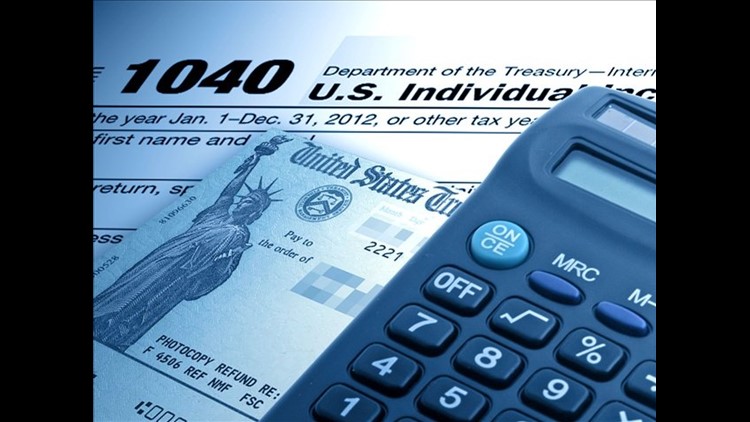WASHINGTON, D.C.- The IRS has issued a warning and tips on how to avoid being scammed on your tax return.
The Internal Revenue Service warned taxpayers to avoid unethical tax return preparers, known as ghost preparers.
According to the IRS:
“by law, anyone who is paid to prepare or assist in preparing federal tax returns must have a valid 2019 Preparer Tax Identification Number, or PTIN. Paid preparers must sign the return and include their PTIN.”
Ghost preparers won’t sign your return. Instead, they might print the return and tell the taxpayer (you) to sign and mail it to the IRS.
For e-filed returns, they will take your money and prepare it but won’t digitally sign it as the paid preparer.
According to the IRS, dishonest and criminal ghost tax return preparers look to make easy money by promising a big refund or charging fees based on a percentage of the refund.
Ghost tax return preparers may also:
- Require payment in cash only and not provide a receipt.
- Invent income to erroneously qualify their clients for tax credits or claim fake deductions to boost their refunds.
- Direct refunds into their own bank account rather than the taxpayer’s account.
“The IRS urges taxpayers to review their tax return carefully before signing and ask questions if something is not clear. And for any direct deposit refund, taxpayers should make sure both the routing and bank account number on the completed tax return are correct.”
The IRS has these ten tips to avoid being scammed:
- Check the Preparer’s Qualifications. People can use the IRS Directory of Federal Tax Return Preparers with Credentials and Select Qualifications. This tool helps taxpayers find a tax return preparer with specific qualifications. The directory is a searchable and sortable listing of preparers.
- Check the Preparer’s History. Taxpayers can ask the Better Business Bureau about the preparer. Check for disciplinary actions and the license status for credentialed preparers. For CPAs, people can check with the State Board of Accountancy. For attorneys, they can check with the State Bar Association. For Enrolled Agents, taxpayers can go to the verify enrolled agent status page on IRS.gov or check the directory.
- Ask about Service Fees. People should avoid preparers who base fees on a percentage of the refund or who boast bigger refunds than their competition. When asking about a preparer’s services and fees, don’t give them tax documents, Social Security numbers or other information.
- Ask to E-File. Taxpayers should make sure their preparer offers IRS e-file. The quickest way for taxpayers to get their refund is to electronically file their federal tax return and use direct deposit.
- Make Sure the Preparer is Available. Taxpayers may want to contact their preparer after this year’s April 15 due date. People should avoid fly-by-night preparers.
- Provide Records and Receipts. Good preparers will ask to see a taxpayer’s records and receipts. They’ll ask questions to figure things like the total income, tax deductions and credits.
- Never Sign a Blank Return. Taxpayers should not use a tax preparer who asks them to sign a blank tax form.
- Review Before Signing. Before signing a tax return, the taxpayer should review it. They should ask questions if something is not clear. Taxpayers should feel comfortable with the accuracy of their return before they sign it. They should also make sure that their refund goes directly to them – not to the preparer’s bank account. The taxpayer should review the routing and bank account number on the completed return. The preparer should give you a copy of the completed tax return.
- Ensure the Preparer Signs and Includes Their PTIN. All paid tax preparers must have a Preparer Tax Identification Number. By law, paid preparers must sign returns and include their PTIN.
People can report abusive tax preparers and suspected tax fraud to the IRS. Use Form 14157, Complaint: Tax Return Preparer. If a taxpayer suspects a tax preparer filed or changed their return without the taxpayer’s consent, they should file Form 14157-A, Return Preparer Fraud or Misconduct Affidavit.



